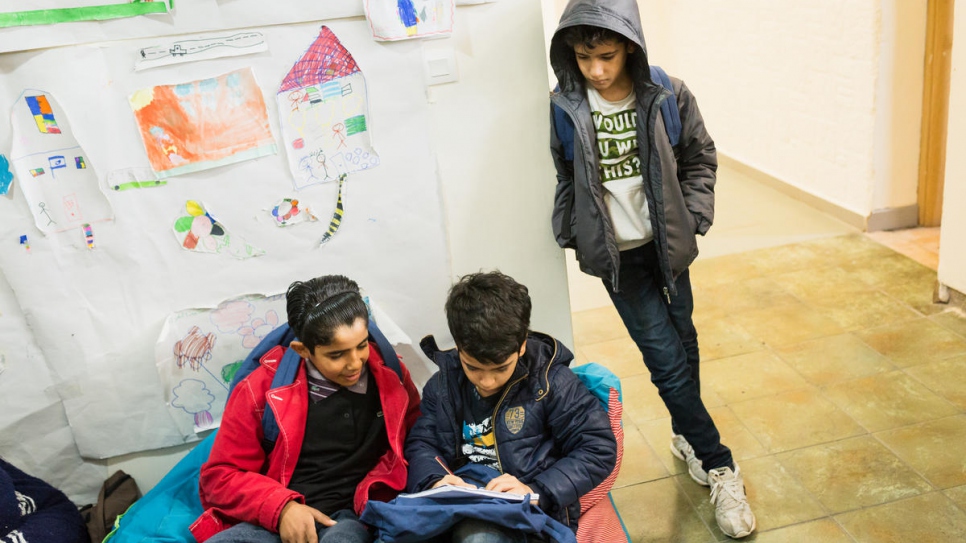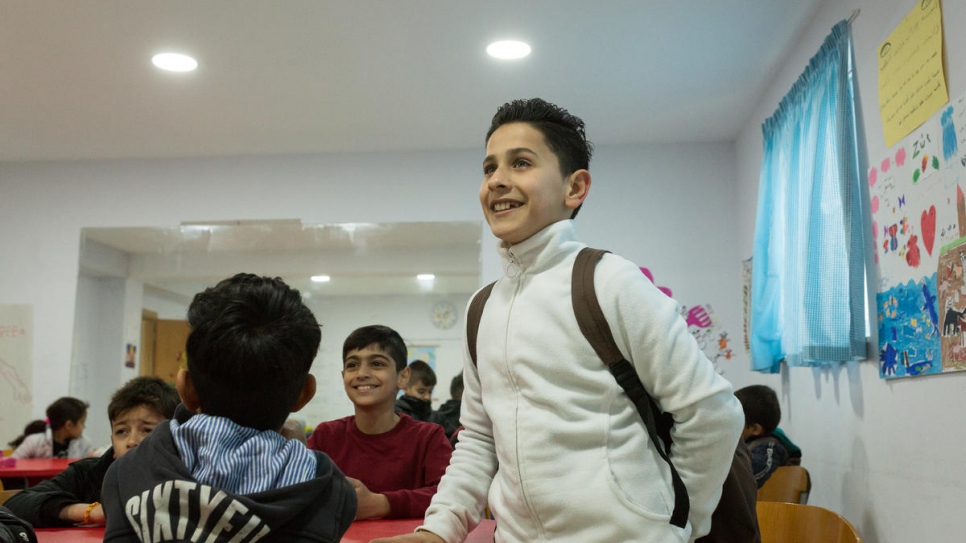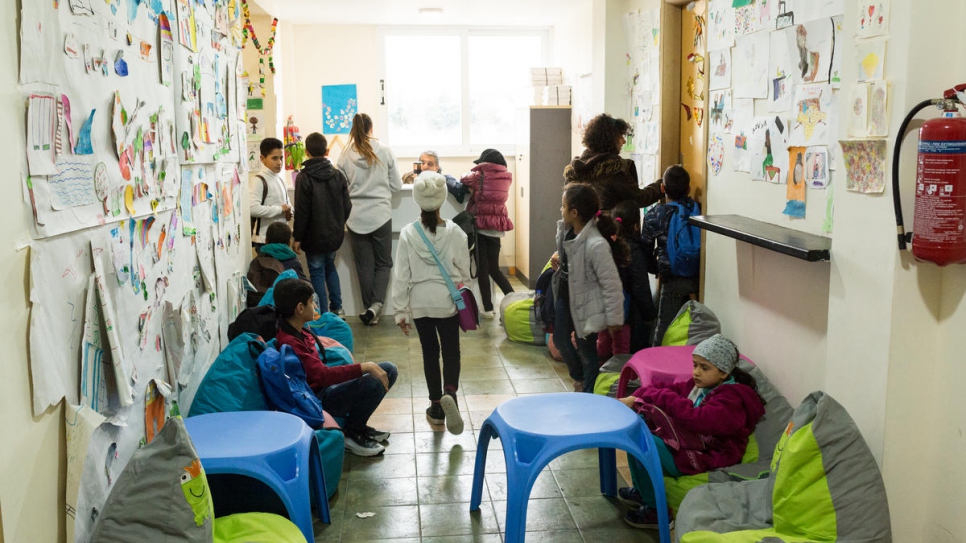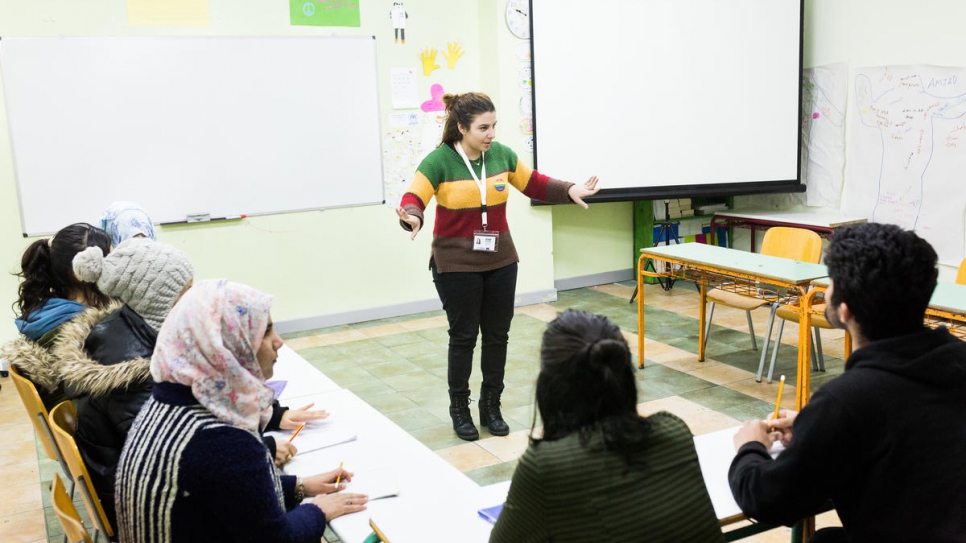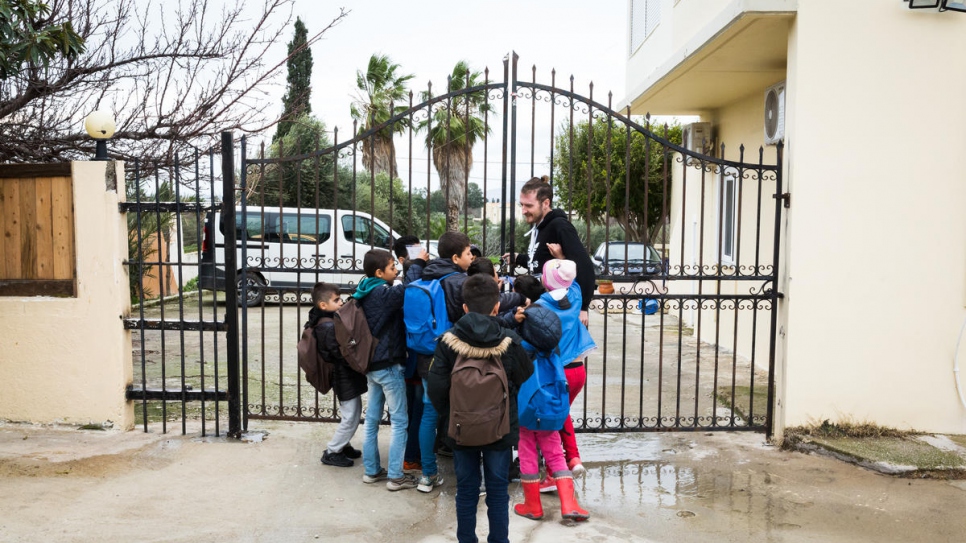Thirteen-year-old Bahez from Iraq carefully sketches an ancient marble head. His skills – and interest in Greece – are taking shape thanks to a school set up by UNHCR, the UN Refugee Agency, on the Greek island of Kos.
“I enjoy it because I’m learning something about Greece,” explains the teenager, who fled the fighting in Iraq with his family last year.
Bahez is one of around 100 child asylum seekers attending KEDU, an informal school on Kos, supported by UNHCR. Today, they are learning about the island’s history during an outing to the Archaeological Museum of Kos.
The school teaches displaced children aged between seven and 18 years old. Almost 400 youngsters, who might otherwise have no education, have passed through its doors since they opened last April under the management of UNHCR’s partner, ARSIS.
“I enjoy it because I’m learning something about Greece."
Offering a range of subjects from mathematics to Greek, it provides a welcome respite to children in the nearby Pyli reception centre on the island, whose lives have been upended by flight. Sixteen-year-old Mohamed, who fled conflict in Yemen, never misses a day.
“This is my second home,” he says. “I love everything about school.”
Morning classes cater to younger children aged seven-11. Afternoons are dedicated to the older children. On Friday, students have access to computers and there are lessons for children with special learning needs.
Other subjects on offer include science, arts and crafts, history, English and one hour a week of Arabic tuition. Sports take place in a large yard.
There are also educational outings like the one to the Archaeological Museum of Kos. Others have included a visit to a local vineyard and an architect’s office.
“We are trying to build basic skills,” says Xenia Chatzidavid, KEDU’s coordinator, who lives in the nearby town of Pyli and knows the community well. “We are very glad that so many [students] come to classes.”
There are new faces each week. Most children go on to enter the national education system or formal education. Last year, some 8,000 asylum-seeking children studied in Greek state schools and that number is expected to grow in the year ahead.
“Education is a very important matter [for children fleeing to Greece],” says Maria Kritikou, a government official who runs the island’s reception and identification centre at Pyli. “If we invest in education, we are investing in the human.”
Around 800 asylum-seekers live at Pyli, a spartan site a few miles from the island’s capital. A staggering 29 per cent – almost a third – are children, some of whom arrived alone, their future uncertain.
“It is important for refugee children to find normalcy in their life and a safe environment outside Pyli, in which they can learn and interact with others,” says Xenia Passa, a protection officer with UNHCR, which set up and supports KEDU with European Union funding.
On Kos, Hippocrates seems to have weaved his magic over his young visitors. Seventeen-year-old Ibrahim from Aleppo in Syria has a new ambition.
“I want to become a doctor and live in Greece,” he says, happily. “I only ask for the opportunity to study.”

